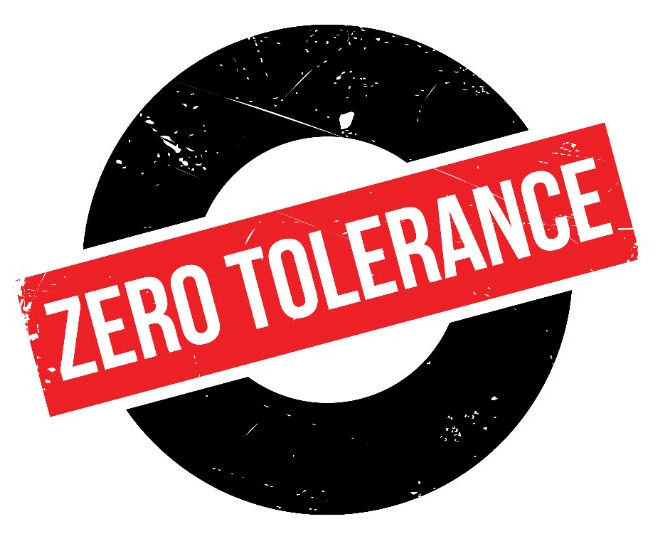Be Cautious With "Zero Tolerance"
Consider there could be negative consequences from using the term zero tolerance.

It could create legal problems in the future when you are taking disciplinary actions against the perpetrators of workplace violence.
Use of the term could make it more difficult to defend a case on appeal because a third party could conclude, however mistakenly and inappropriately, that the company has not considered a penalty appropriate for the particular offense.
There are other possible consequences:
- The term, "zero tolerance" might appear to eliminate any flexibility a company has in dealing with difficult situations even if this is not intended.
- Another undesirable side effect is that the appearance of inflexibility can discourage employees from reporting incidents because they do not want to get their coworker fired -- they just want the behavior stopped. This appearance of inflexibility also may discourage early intervention in potentially violent situations.
The sample policy, in the next section, contains language that is similar to "zero tolerance," but takes care of the previously mentioned concerns. It says the company will not tolerate violent or disruptive behavior and then clarifies what that means by saying "that is, all reports of incidents will be taken seriously and dealt with appropriately."
Consult With Legal Counsel
Be sure to consult the company legal department or attorney for the legal implications of your draft policy.
Knowledge Check Choose the best answer for the question.
2-4. Why might a "zero tolerance" policy be an unwise policy in a violence prevention program?
You forgot to answer the question!
